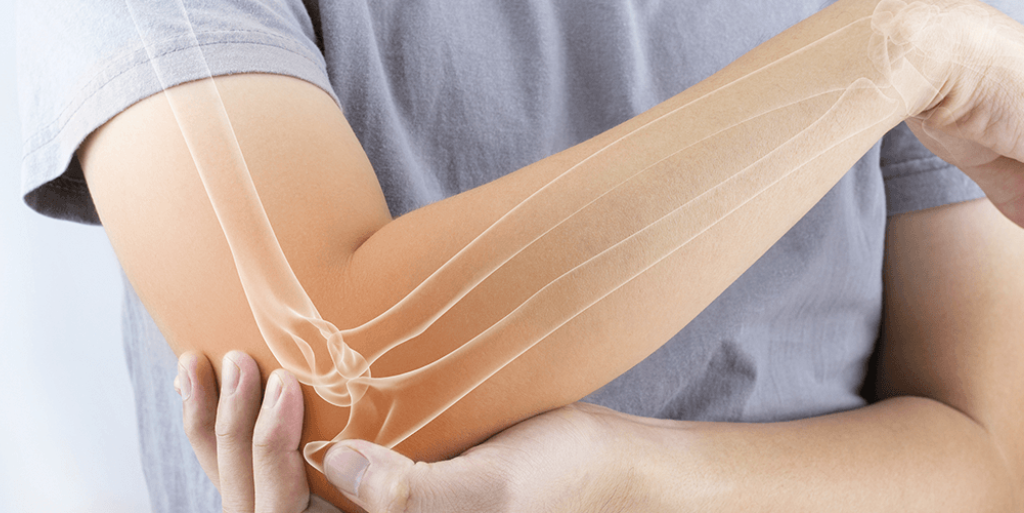If you’re experiencing pain in your shoulder or elbow, arthritis could be the cause. Arthritis in these joints is typically the result of cartilage deterioration over time. The most common types of arthritis affecting the shoulder and elbow are osteoarthritis and rheumatoid arthritis. Below, our Rockwall orthopedic specialists explain the causes, symptoms, and treatment options available for shoulder and elbow arthritis.
Osteoarthritis
Osteoarthritis is a degenerative condition where the cartilage that cushions your joints wears down over time. In the shoulder and elbow, this breakdown can cause significant pain, stiffness, and a loss of mobility. Cartilage acts as a buffer between the bones, and once it wears away, the bones begin to rub against each other, leading to inflammation and discomfort.
This condition most often affects people over the age of 50 but can begin as early as your 30s or 40s. It may progress slowly and go unnoticed at first, but as the cartilage continues to degrade, symptoms tend to worsen.
Causes
The exact cause of osteoarthritis in the shoulder or elbow isn’t always clear. Repetitive motion, heavy lifting, prior joint injuries, and general wear and tear from aging can all contribute to joint degeneration. Genetic factors may also play a role, and individuals with a family history of arthritis may be more likely to develop it themselves.
Symptoms
Common symptoms of osteoarthritis in the shoulder or elbow include:
- Persistent joint pain that worsens with activity
- Stiffness or reduced range of motion
- Swelling around the joint
- Grinding or popping sensations when moving the arm
- Difficulty lifting or rotating the arm (for the shoulder) or bending/straightening the arm (for the elbow)
Treatment
Initial treatment for osteoarthritis may involve non-surgical strategies such as:
- Modifying daily activities to reduce stress on the joint
- Physical therapy to improve strength and flexibility
- Over-the-counter pain relievers like NSAIDs (e.g., ibuprofen or naproxen)
- Corticosteroid injections to reduce inflammation
- Joint lubrication injections (such as hyaluronic acid)
If symptoms become severe and significantly interfere with daily life, surgical options such as shoulder or elbow joint replacement may be considered.
Rheumatoid Arthritis
Rheumatoid arthritis (RA) is an autoimmune disease that causes inflammation of the joint lining (synovium), commonly affecting the shoulder and elbow. Unlike osteoarthritis, RA can affect both joints symmetrically and may occur at any age, though it often begins in middle adulthood.
Causes
The exact cause of RA is unknown, but it’s believed to be related to an abnormal immune response in genetically predisposed individuals. Environmental factors such as stress or infections may also trigger the onset of the disease.
Symptoms
Symptoms of rheumatoid arthritis in the shoulder and elbow may include:
- Joint pain and stiffness, especially in the morning
- Swelling and warmth around the joint
- Fatigue and general weakness
- Loss of joint function over time
- Nodules under the skin (rheumatoid nodules)
Treatment
Treatment for rheumatoid arthritis typically includes:
- Disease-modifying antirheumatic drugs (DMARDs)
- NSAIDs and corticosteroids to manage pain and inflammation
- Physical therapy
In advanced cases, joint replacement surgery may be necessary to restore function and relieve pain
***
If you suspect you may be dealing with arthritis in your shoulder or elbow, contact Lake Pointe Orthopaedics for a complete evaluation. Our team can help determine the best course of treatment to reduce pain and improve mobility.
